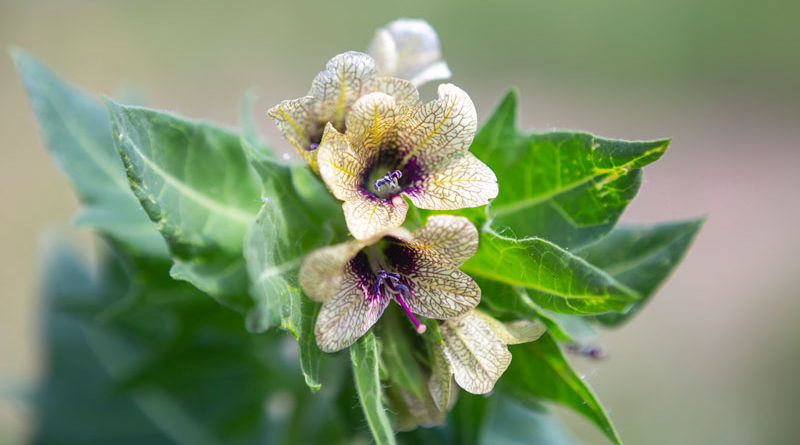Town on the lookout for black henbane, continuing control efforts
By John Watson Rural Journalism Initiative Reporter

John Watson Photo
The Town of Strathmore is advising residents to be on the lookout for black henbane, an invasive weed they are working to control and eliminate from the local area.
Black henbane falls under Alberta’s Weed Control Act, which was put into place in 2010. Town of Strathmore Operations Manager, Donna McCallum, said the noxious plant is generally predictable in where it will grow and is easy to identify.
“Noxious weeds will generally grow in areas that have been disturbed through mostly development,” she said. “It is invasive. It does grow in these disturbed areas, the seeds will spread through wind, rain, that sort of thing.”
McCallum added residents are advised not to touch the plants, as contact will burn the skin and leave a rash.
The plant is also toxic if consumed. Cattle and other animals are susceptible to it, and may suffer tachycardia (rapid heartbeat), convulsions, vomiting, hypertension (high blood pressure), and hyperpyrexia (extreme fever).
McCallum said as the plant is considered noxious by the provincial government, there are regulations on how it is to be managed if encountered.
“The government does regulate how we manage weeds, so if anything is prohibited noxious, we’re required to completely destroy it,” said McCallum “If it’s noxious, we have to control it. In the past and still now, the Town still does remove it and completely destroy the weed. We don’t just go and weed-whip it or mow it, we actually go and bag it, pull it and burn it.”
If a resident happens across black henbane, McCallum asks that they report the plant to the town instead of trying to remove it by themselves.
“Some people are interested and may know how to remove it … if people see it I would like them to report it to the operations department,” she explained.
McCallum regarded black henbane as having been quite common and widespread around Strathmore in the summer of 2020, but due to removal efforts is much less common this year.
Information about the plant and control efforts is available by calling the town, or by going online to their website.
“We’re always willing to go out and show people what it looks like, what it is and educate them about it,” added McCallum.
Black henbane is still allowed to be recreationally cultivated in a garden, but is not permitted to be allowed to spread from a controlled area.
As a bit of interesting history behind the plant, in Medieval times, henbane was allegedly used by witches to allow them to fly. Experimenting with this idea is discouraged by the Town of Strathmore.
